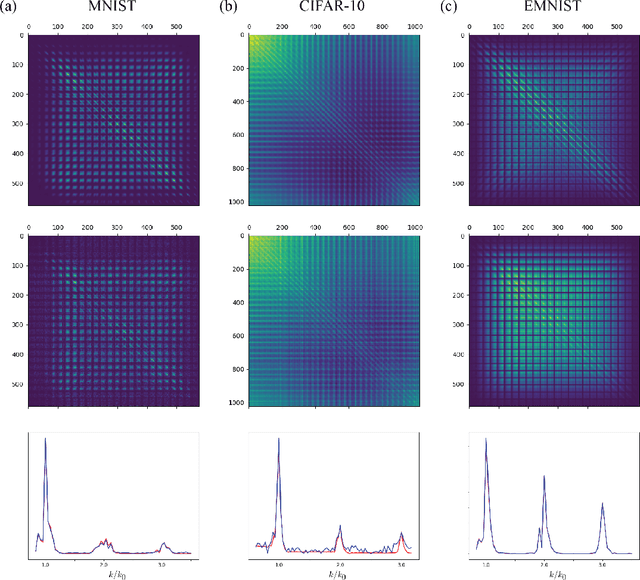Jeonghyeok Park
Fluctuation-dissipation Type Theorem in Stochastic Linear Learning
Jun 04, 2021
Abstract:The fluctuation-dissipation theorem (FDT) is a simple yet powerful consequence of the first-order differential equation governing the dynamics of systems subject simultaneously to dissipative and stochastic forces. The linear learning dynamics, in which the input vector maps to the output vector by a linear matrix whose elements are the subject of learning, has a stochastic version closely mimicking the Langevin dynamics when a full-batch gradient descent scheme is replaced by that of stochastic gradient descent. We derive a generalized FDT for the stochastic linear learning dynamics and verify its validity among the well-known machine learning data sets such as MNIST, CIFAR-10 and EMNIST.
Korean-to-Chinese Machine Translation using Chinese Character as Pivot Clue
Nov 25, 2019



Abstract:Korean-Chinese is a low resource language pair, but Korean and Chinese have a lot in common in terms of vocabulary. Sino-Korean words, which can be converted into corresponding Chinese characters, account for more than fifty of the entire Korean vocabulary. Motivated by this, we propose a simple linguistically motivated solution to improve the performance of the Korean-to-Chinese neural machine translation model by using their common vocabulary. We adopt Chinese characters as a translation pivot by converting Sino-Korean words in Korean sentences to Chinese characters and then train the machine translation model with the converted Korean sentences as source sentences. The experimental results on Korean-to-Chinese translation demonstrate that the models with the proposed method improve translation quality up to 1.5 BLEU points in comparison to the baseline models.
* 9 pages
 Add to Chrome
Add to Chrome Add to Firefox
Add to Firefox Add to Edge
Add to Edge